Paul Kelly Inquirer: Donald Trump’s disruption rocks US alliance
Australia confronts an unprecedented task in alliance management under this autocratic US President. Whoever confronts it best may win the next election.
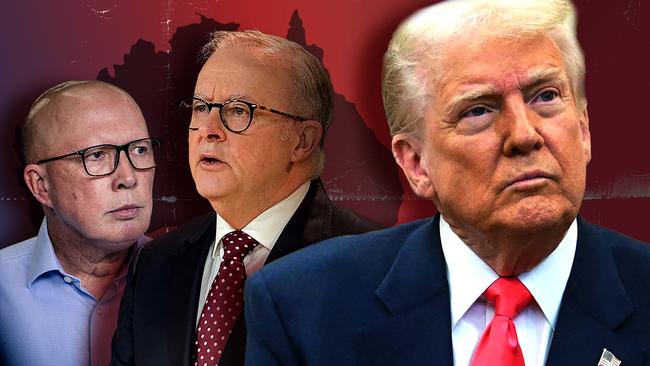
The long-cherished, much-prized, constantly invoked Australian-American alliance has entered its most threatening period for several decades courtesy of Donald Trump’s globally destructive tariff hikes and his unpredictable recasting of the US alliance system.
Australia confronts an unprecedented task in alliance management and dangers under Trump. His tariff decision this week on steel and aluminium damages our jobs and industry, but the greater fear is that his April “reciprocal tariff” campaign may punish our more valuable agricultural and pharmaceutical exports – provoking justified community and political hostility towards Trump.
Yet while Australia is an innocent party in the trade crisis – a victim of Trump’s obsessions – the more alarming concern is that Trump, sooner or later, will publicly criticise Australia for its manifestly inadequate defence spending, injecting himself into the conditions that sustain the alliance under his administration.
This goes to Albanese government policy and culpability. Our defence spending – running at 2.03 per cent of GDP in 2024-25 and rising to 2.33 per cent of GDP in a distant 2033-34 – is on an untenable trajectory in a world of sharply intensifying strategic risk.
It would be extraordinary if Trump overlooked our defence budget inadequacy. He might, but it’s unlikely. During the week, former ALP leader and defence minister Kim Beazley and co-author of the Labor-authorised Defence Strategic Review Peter Dean flagged in The Australian defence spending in the 3 per cent of GDP benchmark – a 50 per cent rise on current levels.
Beazley said Australia had to “up our spending to 3, 3.5 per cent of GDP”, effectively backing Trump’s call for higher defence spending from allies, while Dean said the budget must move to “somewhere around 3 per cent” of GDP, which was advocated the week before last by senior Trump administration official Elbridge Colby. Labor is on notice.
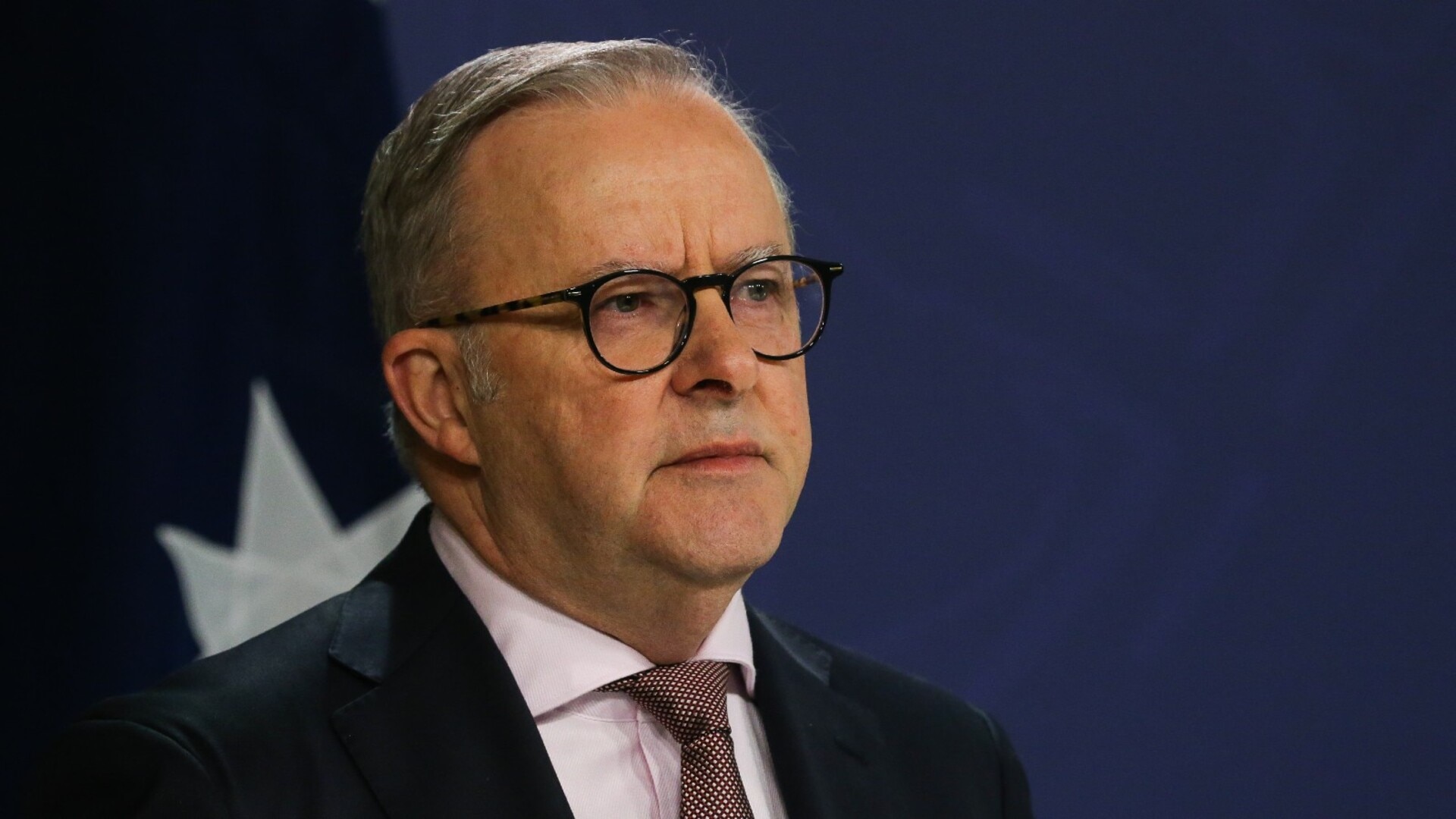
While the March 25 budget seems certain to contain another round of household subsidies to offset escalating power bills following the existing $300 rebate support – such support doing nothing to confront the core problem of rising power prices – Labor needs a budget that responds to the pressure for a higher defence spending trajectory.
Despite the ugly fiscal implications, such a refusal would constitute an abrogation of the national interest. It would risk provoking a Trump intervention perhaps during the campaign – if he has time to worry about Australia – and unlike the trade situation this would be seen as evidence of Labor’s policy inadequacies.
The related problem is Trump’s approach to the Indo-Pacific, given his retreat from security obligations in Europe and from a US grand strategy.
At the week’s end, former security chief and prime architect of the 2017 foreign policy white paper Richard Maude wrote a chilling analysis in The Australian Financial Review warning that Australia faced some of its most consequential challenges for decades centred on the question: is America still committed to a military balance of power in the Indo-Pacific that deters China from the use of force?
This highlights the contradictions and complexity in Australia’s dealings with Trump. As Beazley said, Australia must seek to preserve the US alliance because “we can’t afford to run our own game; people are full of piss and wind on that”. Maude said Australia was neither psychologically nor technologically ready for a nuclear deterrent capability and must seek “to work pragmatically with the Trump government”, finding alignments where we could but standing up for our beliefs.
The Albanese government will seek to separate trade conflict from strategic issues. Yet the more Trump punishes Australia on trade, the more public opinion and the Labor faithful will turn hostile towards him. Yet Trump’s adolescent glass jaw means he will retaliate against Australia if faced with personal criticism. The path that must be navigated is strewn with obstacles.
Let’s get one thing clear given the pathetic local politics over who is to blame for the imposition of steel and aluminium tariffs. The answer is obvious: Trump is to blame. Not Anthony Albanese or Kevin Rudd or Trade Minister Don Farrell. Trump is attacking global trade in his deluded bid to strengthen the US industrial base. There is neither economic logic nor political justification for this unilateral and destructive project.
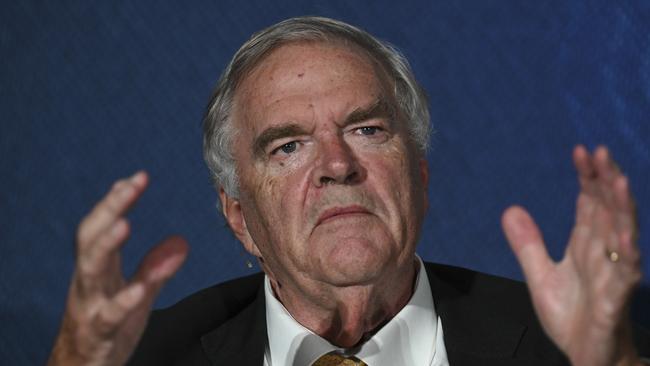
Nobody asked Trump to launch this tariff war, not just against China but against other nations and allies. At the outset The Wall Street Journal branded Trump’s tariff increases “the dumbest trade war in history” – and the dumbest war is only getting dumber.
Making a considered assessment, Trump’s outlook is a menace to the world and to Australia. Note what he said about allies: that US allies were often “worse than our enemies” on trade issues. It’s part of his fraudulent narrative of poor America as a victim.
Trump functions as an autocrat, driven by a fanatical sense of American grievance, trade policy prejudice, strategic retreat and the quest for retribution. He is smashing not only the norms of global trade but his cavalier “on again, off again” tactical ploys also are undermining market and financial confidence in his presidency.
With Trump, there is no leader’s masterplan, no coherent exposition of how he intends to change the world and deliver a better world and better America. Like a true autocrat, his word is his command. His minions fall into line and execute his orders no matter how damaging and disruptive as they send a wrecking ball through countries long friendly or alliance partners with the US. This is a formula that won’t work.
Unless it’s changed, it will bring Trump undone. It is easy politics but false for the Coalition and its leader, Peter Dutton, to blame Albanese for Australia’s failure to get a tariff exemption. No country got an exemption, and that included Australia. No leader who visited Trump got an exemption. That’s because Trump Mark II is more dangerous and decided the tariff exemptions he offered the first time were a mistake.
The Coalition invoked Malcolm Turnbull’s success in winning a trade exemption the first time around but Turnbull shot its case, saying “this is a very different America, led by a very different president” and an exemption would be “a lot harder”. Former ambassador to the US Arthur Sinodinos made the same point.
In his political attack Dutton even implied he could have got an exemption, saying: “We don’t believe an outcome wasn’t possible.” So Dutton, evidently, could have pulled off an exemption that no other leader in the world got and that Turnbull and Sinodinos had discounted. Who would be gullible enough to believe this nonsense?
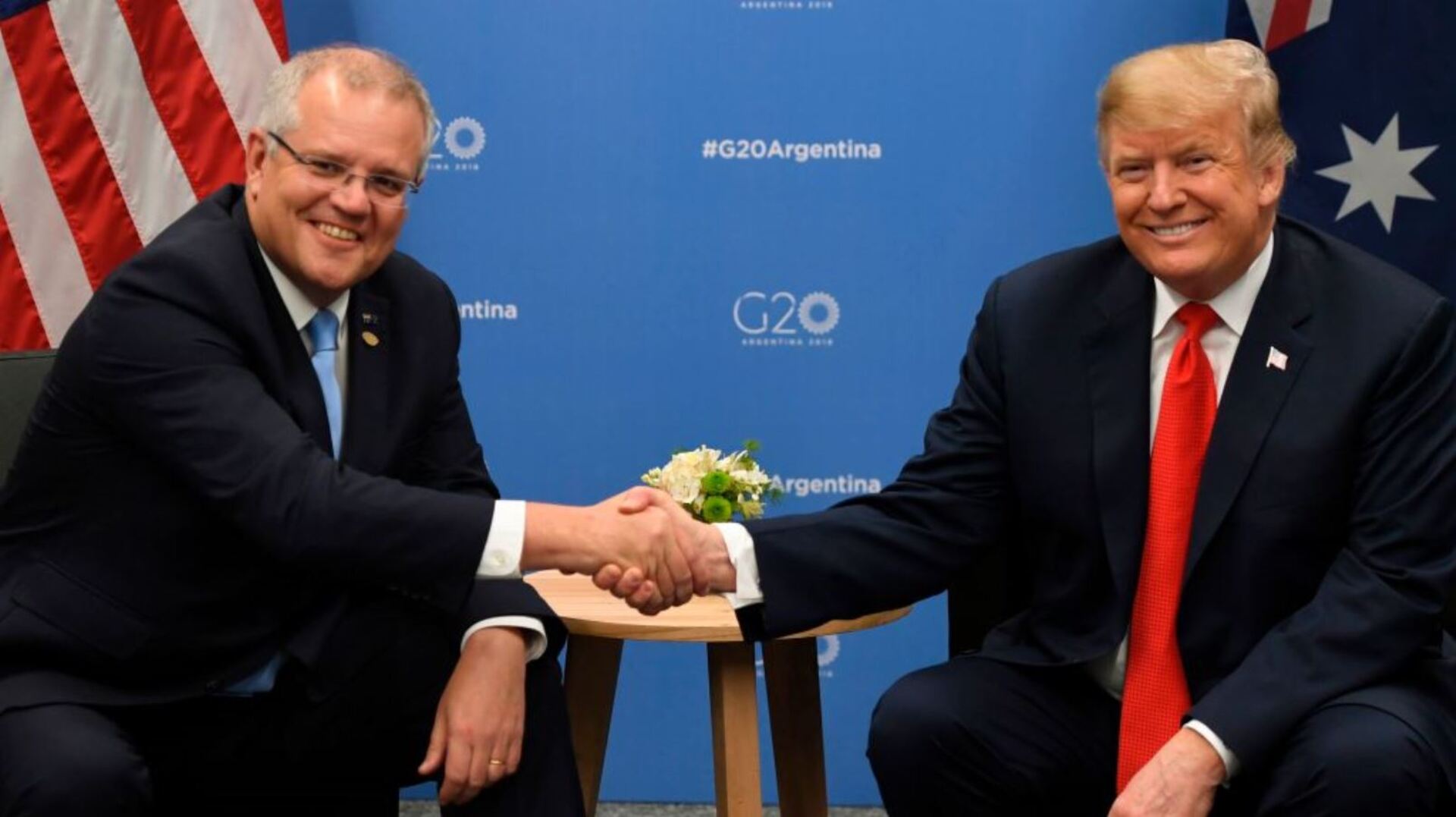
For months the Coalition has demanded that Albanese visit Trump, a visit that had no hope of changing Trump’s mind but that would have further boosted the opposition’s attack when it failed. For some reason the Australian media treated this Coalition hypocrisy with kid gloves.
The Coalition misread Trump, thinking personal rapport between leaders could do the job. Personal rapport is fine, but the evidence is clear – it couldn’t do the job on tariffs.
In the end, everything comes back to Trump. In his most recent remarks he refuses to accept Canada’s sovereignty, saying “to be honest with you, Canada only works as a state”; that is, as an American state. He said the border between the US and Canada was an “artificial line” but, being generous, he said Canada could keep its national anthem as a US state. Might he be asked about Australia?
Meanwhile, Vladimir Putin has put conditions on Trump’s ceasefire proposal that are tantamount to denial or delay. Trump, having repeatedly told the world that Putin was ready for peace, having aligned with Russia and undermined Ukraine, faces the prospect of being humiliated by Putin. No doubt the Russian leader will string him along with a face-saving concession.
Trump is obsessed about being the strong man – imposing tariffs, mocking allies, seeking deals with autocrats – yet is conspicuously reluctant to uphold US strategic commitments and seems equally reluctant to engage in strategic deterrence against China.
In his article, referring to the current situation, Maude said: “None of this suggests Trump is remotely interested in contesting primacy in Asia. Indeed, if Trump approaches Asia as he has NATO and Ukraine, he will want Pacific allies to bear more of the burden of maintaining security and will be sceptical about the United States underwriting peace. The Pacific Ocean would be less a sphere of US influence and more a protective moat for the US homeland.
“Trump’s instincts will be to avoid conflict over Taiwan at almost any cost. He probably would not see US security and prosperity as fundamentally challenged by Chinese dominance over Asia.”
For Australia, a hegemonic China would compromise our sovereignty, create higher expectations of our compliance with China’s interests and face greater risks of coercion, with Beijing able to demand privileged access to Australian resources, markets and infrastructure.
Maude said of Australia: “The task of building a defence force that has more deterrent capability is therefore more urgent than ever. We look exposed now but will be well and truly caught short if even a military balance of power in the region becomes out of reach.”
The events of the week reveal a world sinking into a Trump-induced series of tensions, with Australia so far on the periphery yet being slowly sucked into the vortex. Trump proceeded with 25 per cent tariffs on steel and aluminium across US trade partners following his earlier tariff decisions on imports from China, Canada and Mexico.
Trump has also threatened further “reciprocal tariffs” on countries from April 2, with risks that more Australian exports might be targeted.
The EU and Canada are retaliating against the US over trade worth billions. Canada is engaged in a trade war with Trump, with its incoming prime minister, Mark Carney, after winning the vote to replace Justin Trudeau, saying: “Everything in my life has prepared me for this moment. Donald Trump has put unjustified tariffs on what we build, on what we sell, on how we earn a living. He’s attacking Canadian workers, families and businesses. We can’t let him succeed.”
Australian steel and aluminium exports to the US are only 0.2 per cent of the total value of our exports worth a touch over $1bn. The damage from Trump’s decision is tangible but minor.
On the way through, however, Trump treated Australia and Albanese with contempt, refusing to even take another phone call from the Prime Minister – that would have been the third – as Albanese sought to pursue his lobbying.
It looks bad and it is bad. The question hangs in the balance: can Albanese establish a tenable working relationship with Trump given their policy and temperamental differences? The jury is out.
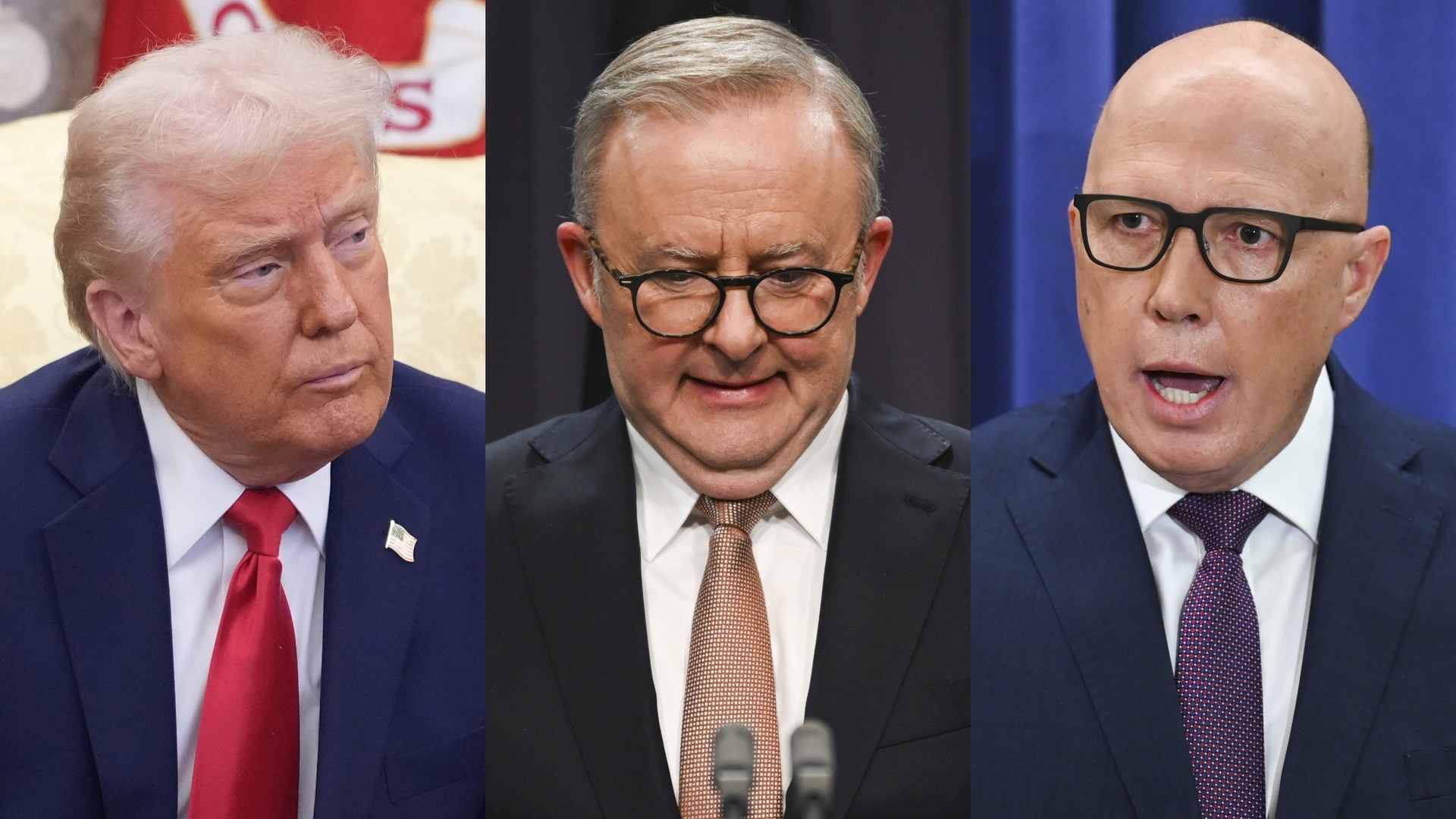
Albanese said of Trump’s tariff decision: “This is against the spirit of our two nations’ enduring friendship and fundamentally at odds with the benefits that our economic partnership has delivered over more than 70 years.” But he refused to condemn Trump personally, dodging invitations at his media conference to call Trump destructive or erratic.
Labor made an apparently appealing offer to the Trump administration. Farrell said: “Australia was offering a comprehensive critical minerals package in exchange for tariff-free access to US markets. We were extremely disappointed that our generous offer was not accepted.” It will remain on the table for further negotiations.
The government took the right decision not to retaliate with its own tariff hikes against the US. That would have been folly, a useless phony tough gesture that only would have provoked Trump. Whoever wins the election – Albanese or Dutton – will relaunch efforts to win concessions, with the post-election situation offering a better climate.
Obviously, Albanese, as Prime Minister, must carry the political responsibility for the failure to win the exemption. The facts, however, are that the outcome was not the result of any Australian policy or administrative mistakes.
The Australian’s chief international correspondent, Cameron Stewart, nailed the issue, saying: “The truth is that if Liberals Malcolm Turnbull, Julie Bishop and ambassador Joe Hockey were still in power they would also have failed to secure the same exemption they won in 2018. Why? Because Trump Mark II is a fundamentally different beast when it comes to tariffs than he was in his first term.”
Indeed, Sinodinos told the ABC’s 7.30 that Australia should have expected Trump’s decision. He said that even if Albanese had dashed over “in the last few days, I don’t think it would have worked” and that Trump “was determined not to have exemptions”.
Trump remains the unknown factor in the looming Australian campaign. Dutton will argue he is better able to deal with the US President, while Labor will seek to cast Dutton in Trump’s corner. Hopefully, Trump will steer clear of the Australian contest. In reality, Albanese and Dutton have a virtually identical stance on trade: they both reject Trump’s decisions, they oppose tariffs and they will pursue the issue post-election.
But Trump will drive Australia into decisive policy changes – the nation needs a more competitive economy, a stronger budget position and a higher defence spend. The worse Australian response would be a populist anti-Trump campaign. That would be tempting but futile and counter-productive.
The Australian government elected in May – Labor or Coalition – will find Trump a far more difficult proposition than the president who dealt with Turnbull and Scott Morrison. The world will be dislocated by economic, trade and strategic upheaval, posing a diplomatic and intellectual challenge rare in our history.
Trump is already being exposed at home. More Americans see him as a wrecker, not a builder. Consumer and investor confidence is eroding due to tariff alarms, stubborn inflation and Trump-induced fear of a recession. This raises the pivotal question for countries such as Australia: at what point might Trump be driven to curb his ways?






